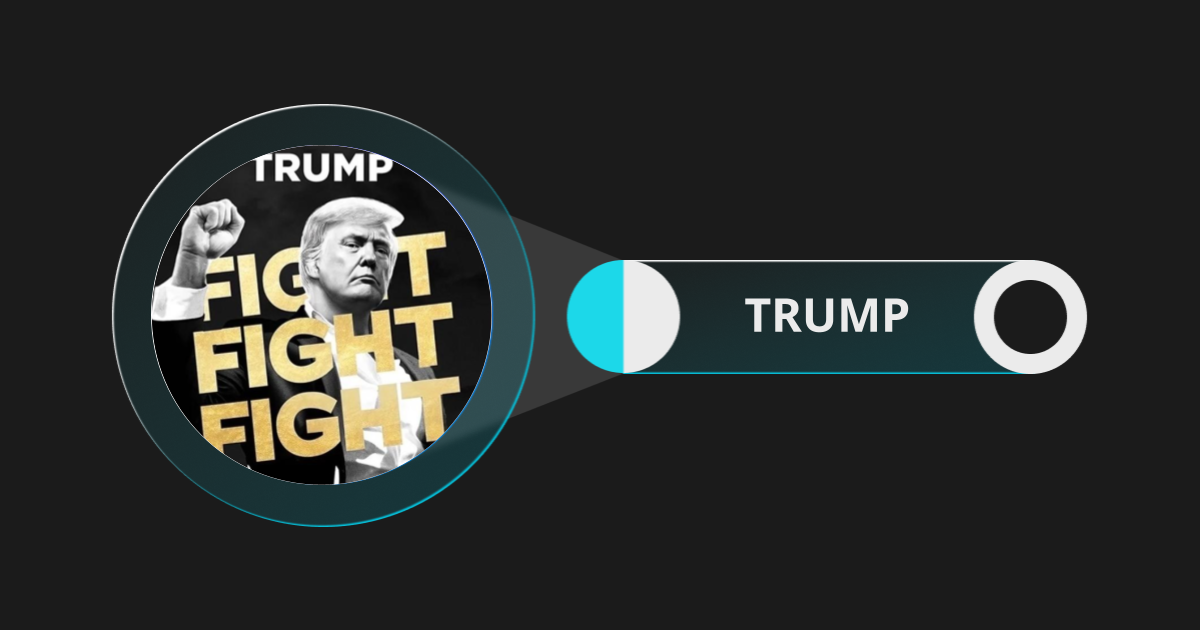
Why are BlackRock and Fidelity’s Bitcoin ETFs Significant to the Crypto Market?
TL;DR
- A Bitcoin ETF is an investment fund traded on stock exchanges that mirrors the price movements of Bitcoin. It offers investors a convenient way to participate in Bitcoin's price fluctuations without directly owning the cryptocurrency.
- The pursuit of a Bitcoin ETF has faced regulatory hurdles for 10 years, but BlackRock's application for a Bitcoin ETF in June 2023 has sparked optimism for a potential breakthrough in the US market. Other crypto firms like Fidelity were encouraged by BlackRock to apply or reapply for spot Bitcoin ETF.
- If BlackRock and Fidelity's spot Bitcoin ETFs receive regulatory clearance in the US, they are expected to have a significant impact on the cryptocurrency ecosystem, offering increased accessibility, market validation, efficiency, portfolio diversification, and potential market growth. However, concerns arise regarding their potentially influencing Bitcoin's direction and the concentration of power with financial giants.
What are Bitcoin ETFs?
Exchange-traded funds, or ETFs, are investment funds that trade on stock exchanges, mirroring the performance of a specific asset or a group of assets. They provide investors with an opportunity to gain exposure to an asset's price movements without directly owning it. ETFs have gained immense popularity due to their liquidity, diversification benefits, and ease of trading.
To learn more about ETFs and crypto ETFs, click here.
A Bitcoin ETF is an investment fund traded on stock exchanges that mirrors the price movements of Bitcoin. It offers investors a convenient way to participate in Bitcoin's price fluctuations without directly owning the cryptocurrency. There are three main types of Bitcoin ETFs: physically-backed, synthetic-backed, and crypto-adjacent. Physically-backed ETFs hold real Bitcoin, while synthetic-backed ETFs hold Bitcoin derivatives contracts, and crypto-adjacent ETFs hold stocks of companies involved in Bitcoin. All types strive to provide investors with returns that closely follow Bitcoin's price.
What Bitcoin ETFs are Available Now?
Since Bitcoin gradually gained traction throughout the years, there has been a relentless pursuit to establish a Bitcoin ETF. The potential of such an investment product to bring digital assets into mainstream finance has been a driving force for proponents. However, the road to regulatory approval has been arduous and marked by multiple rejections and delays. The Winklevoss twins filed for the first Bitcoin ETF in 2013. Yet, it was not until 2021 that a significant breakthrough occurred in the form of the world's first Bitcoin ETF approval. Canada took the lead with the introduction of the Purpose Bitcoin ETF (BTCC), providing public access to this innovative investment vehicle. While several ETFs have gained approval globally, the United States has seen limited progress, with only synthetic-backed and crypto-adjacent ETFs receiving regulatory clearance thus far. Since the Winklevoss twins' initial application for a spot Bitcoin ETF in 2013, the SEC has consistently rejected all subsequent attempts. The prolonged struggle seemed disheartening until June 2023 when BlackRock submitted an application for a Bitcoin ETF. This development has sparked a flicker of optimism within the industry, raising hopes that a spot Bitcoin ETF may soon become accessible to US investors.
Some of the top Bitcoin ETFs in the world are:
USA
- ProShares Bitcoin Strategy ETF (BITO)
- ProShares Short Bitcoin ETF (BITI)
- VanEck Bitcoin Strategy ETF (XBTF)
- Valkyrie Bitcoin Strategy ETF (BTF)
- Simplify Bitcoin Strategy PLUS Inc ETF (MAXI)
- Global X Blockchain Bitcoin Strategy ETF (BITS)
- Bitwise Crypto Industry Innovators ETF (BITQ)
Australia
- Cosmos Purpose Bitcoin Access ETF (CBTC)
- 21Shares Bitcoin ETF (EBTC)
Canada
- Purpose Bitcoin ETF (BTCC)
- Bitcoin ETF (EBIT)
- 3iQ Bitcoin ETF (BTCQ)
German
- Purpose Bitcoin ETF (9F31, 9F32, 9F33)
Brazil
- QR Capital’s Bitcoin ETF (QBTC11)
What is Happening with BlackRock and Fidelity’s Bitcoin ETF Applications?
Over the past decade, the SEC has consistently rejected spot Bitcoin ETF applications, citing concerns about fraud prevention, market manipulation, and investor protection. Recent events, including the downfall of FTX in late 2022, further tightened regulations around crypto firms.
Despite all this, on June 15, 2023, BlackRock, the world's largest asset management firm, submitted an application for a spot Bitcoin ETF. The filing appeared promising, as BlackRock addressed the SEC's concerns in past applications and proposed measures of resolution. For example, to meet the SEC's requirement of implementing effective surveillance measures in order to prevent market manipulation, BlackRock planned to establish a surveillance-sharing agreement with a reputable United States-based spot trading platform for Bitcoin and listed Coinbase as the custodian for the proposed ETF, ensuring secure management of the Bitcoin holdings. BlackRock's impressive near-perfect track record adds to the prevailing optimism. With 575 filings approved by the SEC and just a single rejection, the asset manager's success rate is remarkable. Both Paul Grewal, Coinbase’s Chief Legal Officer, and Eric Balchunas, a senior ETF analyst at Bloomberg Intelligence, highlight this significant achievement, underscoring BlackRock's expertise and credibility in navigating the regulatory landscape.
BlackRock’s move encouraged eight financial firms like Fidelity, Invesco, VanEck, Cathie Wood's Ark Investment Management, WisdomTree, and more, to follow suit. These firms recognized the importance of addressing the SEC's concerns, just as BlackRock did, in their own applications, and thus resubmitted accordingly. Most cited Coinbase as the one providing custody services for their ETFs as well.
Unfortunately, on June 30, the SEC stated that the filings from BlackRock, Fidelity, and other players lacked clarity and comprehensiveness, signaling further challenges in the pursuit of a spot Bitcoin ETF.
Undaunted, BlackRock resubmitted its filings a few days later. There have not been any further updates regarding the resubmission of applications by other crypto firms. Nonetheless, the SEC's request was seen as a positive sign of progress. While there may be long-winding exchanges and discussions, the fact that the applications were not outright rejected, as seen in the past, provides hope for potential approval in the future.
To get daily updates about Bitcoin ETFs, you can read Bitget Bites here.
The Significance of BlackRock and Fidelity’s Bitcoin ETFs to the Crypto Market
BlackRock and Fidelity’s spot Bitcoin ETFs, if received regulatory clearance in the US, are expected to play a big role in the cryptocurrency ecosystem. In such case, several advantages and opportunities may arise:
- Increased Accessibility: Spot Bitcoin ETFs would provide a straightforward and regulated avenue for traditional investors to gain exposure to Bitcoin's price movements. This accessibility could attract a broader range of investors, including institutional players, who may have been hesitant to enter the cryptocurrency market directly.
- Market Validation: Regulatory approval of spot Bitcoin ETFs from trusted financial giants like BlackRock and Fidelity would serve as a significant validation for the cryptocurrency industry. It would lend credibility and legitimacy to Bitcoin as an investment asset class, potentially attracting more mainstream acceptance and adoption.
- Market Efficiency: The introduction of spot Bitcoin ETFs could enhance market efficiency by allowing investors to trade Bitcoin through a familiar and regulated exchange environment. This increased liquidity and ease of trading could contribute to smoother price discovery and improved overall market functioning.
- Portfolio Diversification: Spot Bitcoin ETFs could offer an opportunity for investors to diversify their portfolios by including exposure to Bitcoin alongside traditional asset classes. This diversification potential may help reduce risk and enhance overall portfolio performance.
- Market Growth: The introduction of BlackRock and Fidelity's spot Bitcoin ETFs could potentially stimulate further growth in the overall cryptocurrency market. It could attract more capital, spur innovation, and drive broader acceptance of digital assets within the financial industry. Furthermore, the potential approval of ETFs by the SEC is anticipated to have a profoundly bullish impact on the market. The mere act of BlackRock filing for a Bitcoin ETF already resulted in BTC reaching a 13-month high, surpassing the US$30,000 threshold. This achievement hints at the huge wave of positive sentiment that may prevail if the application is successfully granted, and vice versa.
However, a closer look at BlackRock Bitcoin ETF's filing raises concerns. A provision within the filing gives BlackRock the power to determine the appropriate network on behalf of the ETF’s investors in the event of a hard fork, potentially influencing Bitcoin's direction and institutional allocations due to the firm's sheer scale and influence. The dominance of financial giants like BlackRock and Fidelity in the spot Bitcoin ETF market could also result in concentration of power and influence. Depending heavily on these institutions for exposure to Bitcoin may limit the decentralization and democratization ideals associated with cryptocurrencies.
While spot Bitcoin ETFs may undeniably grant people more exposure and accessibility to a new form of digital finance that many may not be familiar with, simply focusing on price exposure without actual ownership overlooks the potential of BTC as a transformative financial system. Indeed we welcome broader Bitcoin adoption, but it's also important to remain cautious and not be swayed solely by the hype of established and highly influential financial giants taking part in a decentralized market.
 Disclaimer: The opinions expressed in this article are for informational purposes only. This article does not constitute an endorsement of any of the products and services discussed or investment, financial, or trading advice. Qualified professionals should be consulted prior to making financial decisions.
Disclaimer: The opinions expressed in this article are for informational purposes only. This article does not constitute an endorsement of any of the products and services discussed or investment, financial, or trading advice. Qualified professionals should be consulted prior to making financial decisions.



